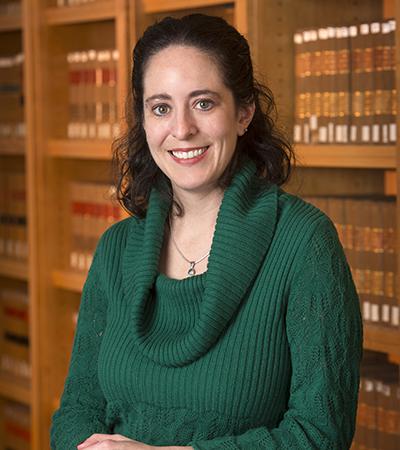
Blankley's Article Published in Conjunction with Creighton Law Review Symposium
21 Mar 2016
Assistant Professor Kristen Blankey's paper, The Ethics and Practice of Drafting Pre-Dispute Resolution Clauses, will be published in the Creighton Law Review in conjunction with the Symposium on "The Development of the Model Rules of Professional Conduct and Ethical Implications for Transactional Attorneys." Blankley's paper considers the ethical issues surrounding alternative dispute resolution processes and working with corporate clients in drafting such clauses. The paper covers both ethical and practical aspects of these issues.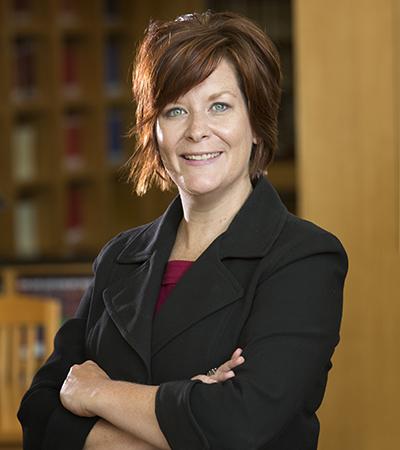
Brummond, '03, Named Nebraska Alumni Association Early Achiever
21 Mar 2016
Assistant Dean for Student and Alumni Relations & Annual Giving, Molly Brummond, was named a 2016 Early Achiever by the Nebraska Alumni Association. Molly oversees student organizations, develops programs, and devotes time to alumni programming and outreach. Upon her graduation from law school, with distinction, Molly entered private practice with the firm of Baylor Evnen Curtiss Grimit & Witt, LLP. After several other career opportunities, she returned to the College of Law in 2010. Brummond also chairs the board of directors for the Food Bank of Lincoln and Southeast Nebraska, and is an adviser for the UNL chapter of Phi Mu, a volunteer for CEDARS Youth Services and a board member for Kidzone. Molly and her husband, Jameson, have two sons, Brooks and Reis.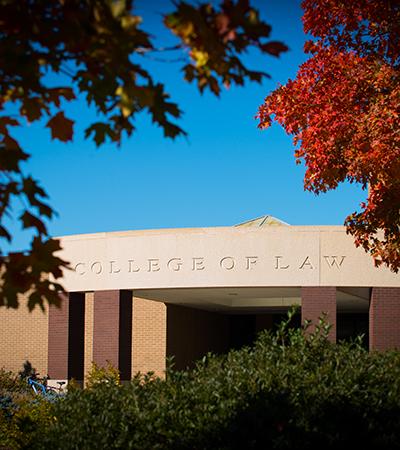
Interim Dean Moberly Digs into the Numbers Behind the U.S. News & World Report Rankings
17 Mar 2016
The University of Nebraska College of Law ranked 57th in U.S. News & World Report’s annual ranking of law schools published this week. I want to highlight some key statistics provided in the report, because I think those numbers demonstrate that Nebraska Law students get terrific results from their education for a comparatively low cost.
Two numbers provided by U.S. News should be paramount to law students and prospective law students: job placement rate and bar passage rate. These numbers best reflect the quality of education a law school provides. Nebraska Law’s rates in both of those categories (87.2% and 90.4%, respectively) place it in the top 30 law schools in the country.
Importantly, Nebraska Law achieves these results while charging the lowest tuition rate among schools U.S. News ranked in the top 100. Our combination of successful outcomes and low tuition is why National Jurist Magazine rated Nebraska Law the No. 1 Best Value law school in the United States. Our students graduate with the fourth-lowest debt load in the country, pass the bar, and start real legal jobs where they put their legal education to work.
The consistency of our overall ranking over the last three years is good given that prospective students consider it as they select a law school. Nevertheless, as you may know, the methodology that creates these rankings is flawed. For example, the U.S. News methodology undervalues results: the job placement rate and bar passage rate I mention above together count for only 20 percent of a school’s total score. “Reputation” and incoming class statistics count for 65 percent of a school’s ranking, although they arguably have little to do with the quality of education a student receives once on campus. The ranking takes into account what schools spend on their services, but does not consider what students spend on tuition.
If you care about outcomes and value, U.S. News can tell you a great deal about the education one might receive at a law school. You just have to look deeper than the final rankings, compare schools based on what they produce by looking at bar passage and job placement, and then look up how much they charge for those results. I am very pleased to report that those metrics demonstrate that Nebraska Law continues to provide real value to its students.
Richard Moberly
Interim Dean
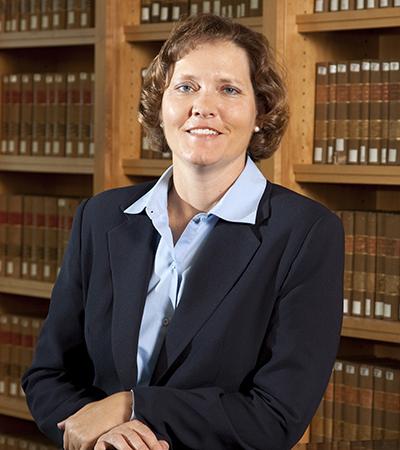
Medill's Article Accepted by Iowa Law Review
17 Mar 2016
Professor Colleen Medill’s article, Regulating ERISA Fiduciary Outsourcing, has been accepted for publication in Volume 102 of the Iowa Law Review. Professor Medill’s interest in the outsourcing of fiduciary functions by employers who sponsor benefit plans for their employees dates back to June of 2014, when she was asked to testify on current industry trends and emerging legal issues by the Department of Labor’s ERISA Advisory Council. The Council’s final report to the Secretary of Labor, which can be found here highlighted her testimony as particularly relevant and helpful to the Council.
The abstract below describes the content of the article:
Pension and welfare benefit plans sponsored by private employers are big business. The sponsorship of these plans is the most heavily tax-subsidized private economic activity in the entire federal budget, with an estimated loss in federal tax revenues due to special tax breaks of over $1.485 trillion for the budget period 2014-2018. In exchange for these special tax breaks, the federal government heavily regulates these private plans. To cope with the complexity, employers increasingly hire outside professional fiduciaries to run their employee benefit plans so that they can concentrate on running their businesses. Although this outsourcing of plan management and administrative functions is now widespread, almost no federal regulation applies to these fiduciary outsourcing arrangements. As evidenced by a 2014 report issued by the Department of Labor's ERISA Advisory Council, both employers and the professional fiduciary services industry want and need more guidance in the form of regulation. The need for regulation has become even more urgent in light of the Supreme Court’s subsequent 2015 decision in Tibble v. Edison International, which further encourages employers to outsource plan asset management functions. This Article explains and analyzes the unresolved issues that have emerged in this complex area of law and proposes specific solutions to better regulate fiduciary outsourcing arrangements.

Nebraska Law to Co-Sponsor Panel at the Space Foundation’s Annual Symposium
11 Mar 2016
Together with the Space Foundation, and Holland & Hart law firm, Nebraska Law is co-sponsoring a commercial space law panel at the 32nd Annual National Space Symposium in Colorado Springs on April 14, 2016. The commercial space law panel is titled, “Congress, the Executive Branch and Industry: Regulating In-Space Activities, Property Rights, Human Space Flight, Space Traffic Management and Orbital Debris.” Speakers will include Dr. George Nield, Associate Administrator for Commercial Space Transportation – FAA; Dr. Alice Bunn, Director of Policy - UK Space Agency; Mike Gold, Director of DC Operations and Business Growth – Bigelow Aerospace; Peter Marquez, Vice-President Global Engagement – Planetary Resources, and Nebraska Law’s Professor Matthew Schaefer, who helped organize the panel along with Holland & Hart.
Professor Schaefer previously spoke at the Space Foundation’s Space Technology and Investment Forum in San Francisco in September 2015.
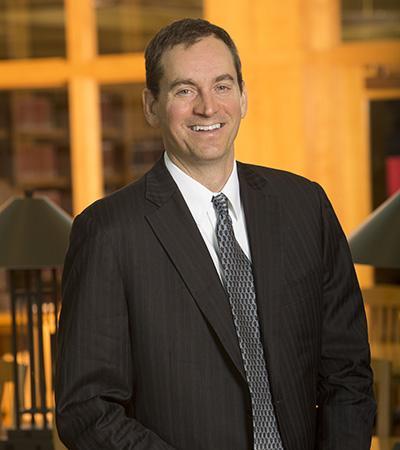
Professor Schaefer Guest Lectures Nationally
11 Mar 2016
Professor Schaefer Guest Lectures at UC-Irvine, Univ. of San Diego, and Univ. of Miami Law Schools on Commercial Space Law in Winter 2016
As part of Nebraska Law’s Space, Cyber and Telecommunications Law LL.M. program outreach in space education, Professor Schaefer guest lectured or taught a mini-course on regulating and incentivizing commercial space activities at three law schools in January and February 2016 with space law and aerospace industry interest. The lectures/mini-courses, some in-person and some online, focused on three problem sets – one involving liability issues, one involving space debris remediation, and one involving asteroid mining with litigation, negotiation, and legislation modules. Professor Schaefer previously taught a similar mini-course at Washington University in St. Louis in September 2014.
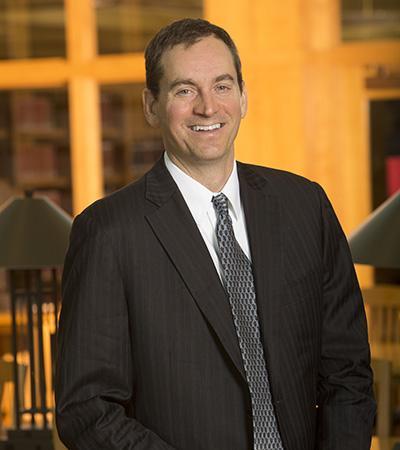
Nebraska Law to Co-Sponsor Panel at 32nd Annual National Space Symposium
11 Mar 2016
Nebraska Law to Co-Sponsor Commercial Space Panel at the Space Foundation’s 32nd Annual National Space Symposium; Professor Schaefer to SpeakTogether with the Space Foundation, and Holland & Hart law firm, Nebraska Law is co-sponsoring a commercial space law panel at the 32nd Annual National Space Symposium in Colorado Springs on April 14, 2016. The commercial space law panel is titled, “Congress, the Executive Branch and Industry: Regulating In-Space Activities, Property Rights, Human Space Flight, Space Traffic Management and Orbital Debris.” Speakers will include Dr. George Nield, Associate Administrator for Commercial Space Transportation – FAA; Dr. Alice Bunn, Director of Policy - UK Space Agency; Mike Gold, Director of DC Operations and Business Growth – Bigelow Aerospace; Peter Marquez, Vice-President Global Engagement – Planetary Resources, and Nebraska Law’s Professor Matthew Schaefer, who helped organize the panel along with Holland & Hart. Professor Schaefer previously spoke at the Space Foundation’s Space Technology and Investment Forum in San Francisco in September 2015.
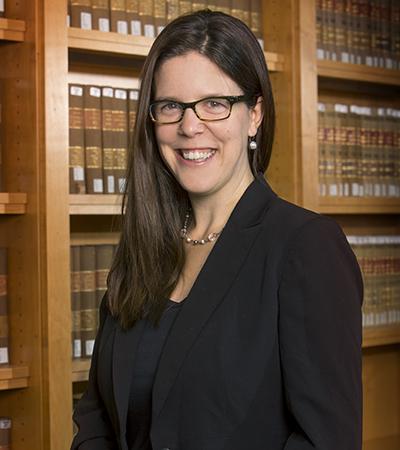
Shoemaker's Article Accepted by Michigan Law Review
09 Mar 2016
Professor Jessica Shoemaker's recent article, Complexity's Shadow: American Indian Property, Sovereignty, and the Future, has been accepted by the Michigan Law Review. The article offers a comprehensive approach to analyzing the modern American Indian land tenure system and explores particularly how the recent pattern of hyper-categorizing property and sovereignty interests into ever-more granular and interacting jurisdictional variables has exacerbated development and self-governance challenges in Indian Country.
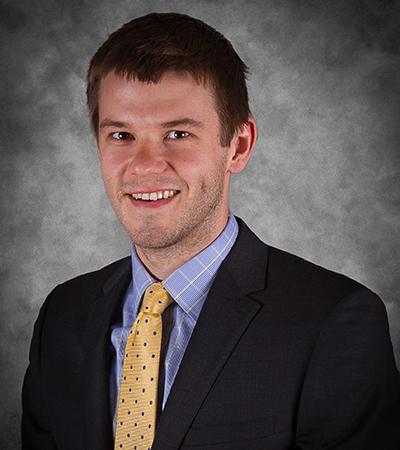
Schmidt, 3L, Named Midwest Finalist for Law Student of the Year
09 Mar 2016
Chris Schmidt, 3L was named a Midwest finalist in National Jurist Magazine's list for Law Student of the Year. Schmidt is in the top 10 percent of his class and serves as the editor-in-chief of the Nebraska Law Review. But it is his leadership of the Community Legal Education Project (CLEP) that sets him apart from others. During Schmidt's time at Nebraska Law, CLEP programs have grown and now engage over 2,250 Lincoln Public School elementary and middle school students in discussions about the Bill of Rights and the U.S. Constitution.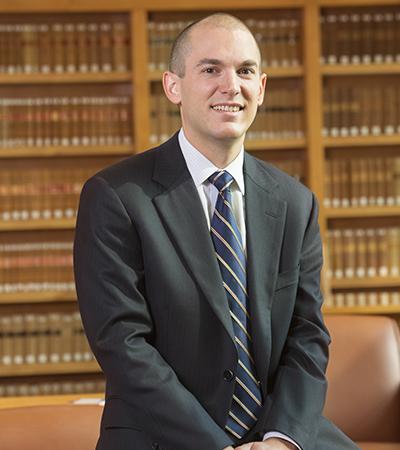
Thimmesch's Article Published in Utah Law Review
08 Mar 2016
Assistant Professor Adam Thimmesch's article, Testing the Models of Tax Compliance: The Use-Tax Experiment, has been published by the Utah Law Review. The article explores how states could apply modern tax-compliance theories to their state use taxes, which currently go largely unenforced and unpaid. The article argues that state action in this area would both (1) help states to increase compliance and (2) give academics and policy makers valuable information regarding how tax-compliance theories work in the context of real-world tax administration.
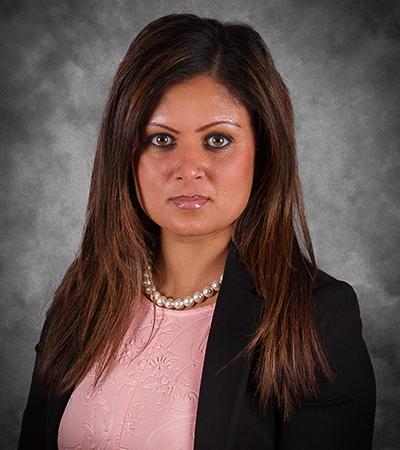
Sharma's Research Published in Nicotine & Tobacco Oxford Journal
04 Mar 2016
Prior to law school, Janki Sharma, 3L, was part of a research team in the department of oral biology at the University of Nebraska Medical Center College of Dentistry. Sharma contributed to the recent ground breaking findings that clearly show that smoking causes birth defects. The investigation, "Nicotine Exposure During Pregancy Results in Persistent Midline Epithelial Seam With Improper Palatal Fusion," was published in the Oxford Journal Volume 18 Issue 3 March 2016.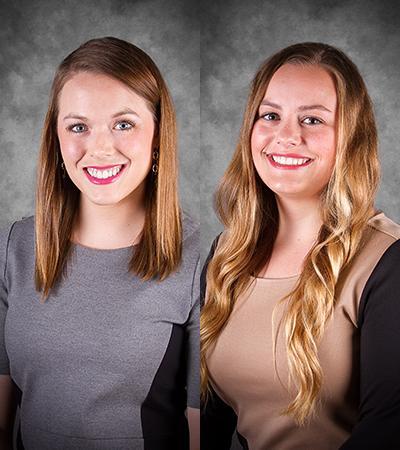
Civil Clinic Students Travel to Beatrice to Provide Peace of Mind
04 Mar 2016
Over a period of three weeks, senior certified law students Jaydon McDonald and Allison Rockey worked with their client on developing a plan for the administration of her estate, and identifying her health care wishes. The students drafted for her a simple will, power of attorney, a living will and a health care power of attorney. Due to the client's medical condition, she could not travel to the Clinic in Lincoln, so everything was done over the phone. When the documents were complete, the students, and their supervising attorney (Professor Sullivan), traveled to Beatrice to execute the documents.
Afterward, McDonald reflected on the experience, noting “we were happy to provide this valuable service to someone in need, and who would otherwise not have access to these services.” Commenting similarly, Rockey found the experience to be “a great opportunity to sharpen our drafting skills and to discuss sensitive topics, such as end of life planning, in an open and personal way.” McDonald and Rockey found especially rewarding the ability to put their client's mind at ease regarding her health care and estate administration.
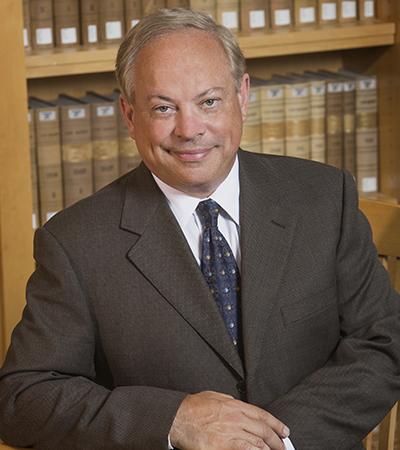
Beard has Article Accepted by the University of Pennsylvania Journal of International Law
02 Mar 2016
Assistant Professor Jack Beard’s most recent article, Soft Law’s Failure on the Horizon: The International Code of Conduct for Outer Space Activities, has been accepted for publication by the University of Pennsylvania Journal of International Law. This article explores the shortcomings of proposed non-legally binding frameworks in dealing with increasingly dangerous military activities in outer space and the growing problem of orbital space debris.
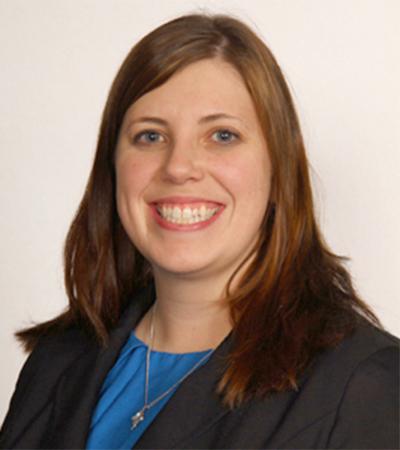
Buckley, '07, Elected Vice-Chair of Siouxland Community Health Center Directors
25 Feb 2016
Andrea Hiatt Buckley, '07, was recently named the Vice-Chair of the Board of Directors for the Siouxland Community Health Center in Sioux City, IA. Buckley has served on the Board since 2013, and has been a staff attorney with Iowa Legal Aid since 2009.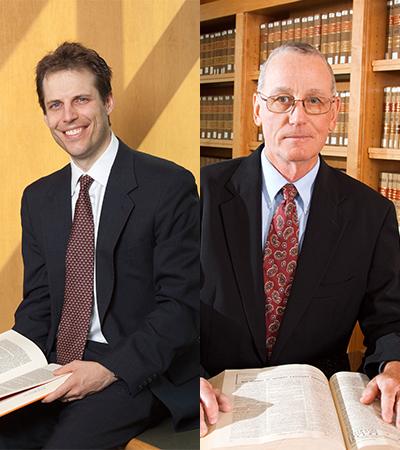
Berger and Works Named Professors of the Year
22 Feb 2016
At the Meeting of the Minds event, Professors Eric Berger and Bob Works were named the 2016 Professors of the Year. Each year, the SBA hosts the event and administers nominations for the Professor of the Year Awards. The current 1L students nominated Professor Works and upperclass students nominated Professor Berger.
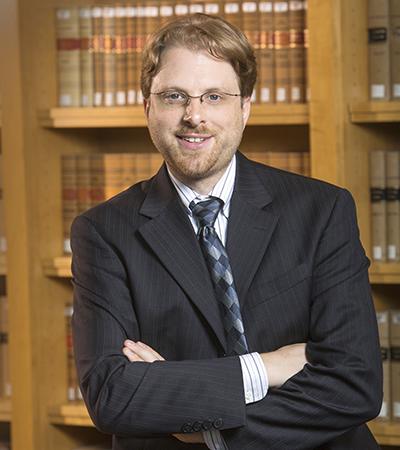
Hurwitz Weighs in on Apple vs. the FBI
19 Feb 2016
Professor Justin (Gus) Hurwitz has been following Apple's opposition of a judge's order to help the Federal Bureau of Investigation break into the iPhone of one of the San Bernadino, California shooters. On Thursday, he spoke to media about that opposition.Apple v. US.: 5 things Gus Hurwitz wants you to know
All Apple's writs are belong to US
Local legal expert weighs in Apple vs. FBI debate
Tim Cook's Bad Apple
Senator: Undermining Apple Encryption Could Lead to 'More People Dying'
Apple, FBI case about law enforcement, experts say
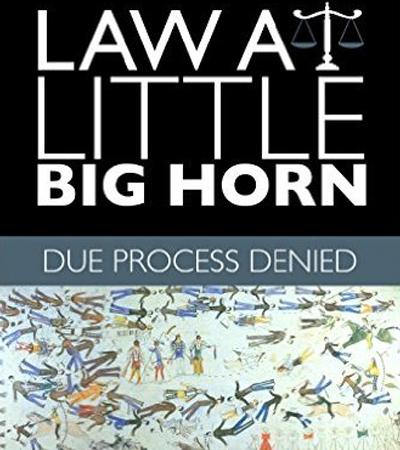
Wright, '58, Publishes Manuscript that Analyzes Great Sioux War
18 Feb 2016
Charles Wright, '58, has been working on his manuscript, Law at Little Big Horn, for eight years. The book details the the conspiracy between President Grant and Generals Sherman and Sheridan to use the Army to attack and forcibly remove the Sioux and Cheyenne Indians from their treaty lands located north of the North Platte River and east of the Bighorn Mountains.Wright analyzes the legal backdrop of the Great Sioux War, asking the hard questions of how treaties were honored and how the US government failed to abide by its sovereign word. Until now, little attention has been focused on how the events leading up to and during the Battle of Little Big Horn violated American Law. Wright is the first to investigate the legal and constitutional issues surrounding the United States' campaign against the American Indians.
Born and raised in western Nebraska, Charles Wright is a retired lawyer who spent fifty year practicing in Nebraska and Colorado. He has long been associated with Indian rights and has funded scholarships and organized a mentoring program for promising Indian students from recognized tribes to attend law school.
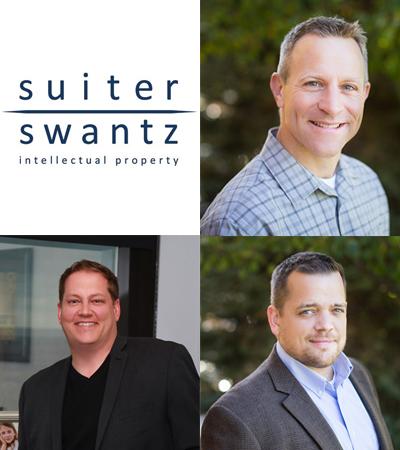
Swantz, '99, Ringenberg, '03, and Poulsen, '10, Named Partners at Suiter Swantz IP
09 Feb 2016
Patent attorneys Chad W. Swantz, ’99, Scot M. Ringenberg, ’03, and Matthew A. Poulsen, ’10, have joined founder Sean Patrick Suiter as co-owners of Suiter Swantz IP.
Suiter Swantz, an Intellectual Property Law firm, was established over two decades ago. The Firm advises a diverse set of clients on patent, trademark and copyright matters. Suiter Swantz IP has obtained over 3,000 patents and approximately 700 trademarks on behalf of the Firm’s clients, which include individual inventors, startups and Fortune 500 companies.
Chad W. Swantz graduated with a Bachelor of Science Degree in Electrical Engineering from the University of Nebraska-Lincoln and a Juris Doctor from the Nebraska College of Law. In addition to his patent practice, Chad manages the Trademark Practice for the Firm, which includes trademark creation and development, domestic and foreign trademark registration, trademark defense and trademark enforcement.
Scot M. Ringenberg received his Bachelor of Science Degree in Chemical Engineering from the University of Nebraska-Lincoln and his Juris Doctor from the Nebraska College of Law. He continued his education with the University of Kansas Electrical Engineering and Computer Science Department graduate studies program. Additionally, he has been admitted to the state bars of Kansas and Missouri.
Matt A. Poulsen obtained his Bachelor of Science Degree and Ph.D. in physics from the University of Nebraska-Lincoln and his Juris Doctor from the Nebraska College of Law, graduating with distinction. As a physicist, his research appeared in numerous peer-reviewed journals. Matt also serves as a mentor for a number of local startup accelerators.
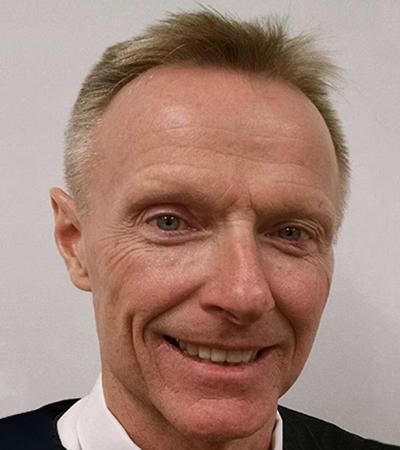
Kelch, '81, Named to Nebraska Supreme Court
04 Feb 2016
The newest member of the Nebraska Supreme Court has spent most of his career as a prosecutor and judge, but those who’ve worked with him say he’s more than a law-and-order guy.
Gov. Pete Ricketts on Wednesday appointed Sarpy County District Judge Max Kelch to the seven-member high court. Kelch replaces retired Judge Michael McCormack and will represent the judicial district that covers parts of Douglas and Sarpy Counties.
A prosecutor and a defense lawyer who’ve tried cases before Kelch described him as decisive and tough but also inquisitive and fair. Both remarked that Kelch enjoys doing legal research and writing opinions, two major requirements of his new position.
“I think it was a really good choice the governor made,” said Sarpy County Attorney Lee Polikov. “He has an impressive record in a whole spectrum of legal practice.”
Kelch, 58, of Papillion, has served as district judge in Sarpy, Cass and Otoe Counties since 2007, when he was appointed by then-Gov. Dave Heineman. Kelch spent the two previous years as a Sarpy County judge.
A 1981 graduate of the University of Nebraska College of Law, Kelch also has been in private practice and has worked as an assistant city attorney in Nebraska City. The governor said in a press release that he liked Kelch’s blend of “real world experience” in several different legal capacities.
“He has demonstrated he understands that the role of the court is to interpret the law, and this approach will continue to serve our state well as Nebraska’s next Supreme Court judge,” Ricketts said.
Before becoming a judge, Kelch worked for 18 years as Otoe County attorney in Nebraska City. While county attorneys are most known for prosecuting criminal cases, they also handle an array of civil matters and run for election.
Cass County District Judge Jeffrey Funke worked alongside Kelch for eight years when Funke was a deputy county attorney. He said Kelch’s vast trial experience as both a lawyer and a judge will serve the high court well.
As for anyone who thinks Kelch won’t give a fair shake to criminal defendants, Funke said his colleague takes the role of judge very seriously.
“He understands the duty of a judge to be fair and impartial,” Funke said. “And he’s got a lot of common sense.”
Sarpy County Public Defender Tom Strigenz submitted a letter to the judicial nominating commission in support of Kelch. Strigenz said Kelch’s writing and researching skills are “legendary” among lawyers who regularly practice before him.
“I think Max Kelch was born to be an appellant court judge,” he said.
Ricketts selected Kelch, a registered Republican, over three other finalists: Douglas County Judge Susan Bazis, Douglas County District Judge Gary Randall and Omaha attorney Patrick Guinan. The finalists were forwarded to the governor by the nominating commission.
The appointment was the governor’s second to the Supreme Court since he took office in 2015. Supreme Court Judge Kenneth Stephan retired in July, and Ricketts appointed Lancaster County District Judge Stephanie Stacy to fill the vacancy.
Story via the Omaha World-Herald.
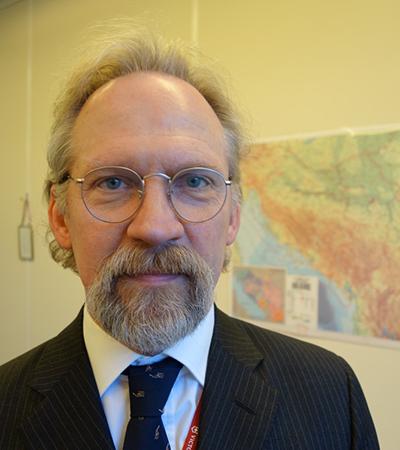
Pittman, '92, Promoted to Head of Chambers for the International Criminal Tribunal for the former Yugoslavia
28 Jan 2016
Thomas Wayde Pittman, '92, has been named the Head of Chambers for the International Criminal Tribunal for the former Yugoslavia (ICTY). As Head of Chambers, which is a Directorate-level position within the United Nations, Pittman's primary responsibility is to serve as the principal legal adviser to the President and Judges of the Chambers of the ICTY, providing guidance and direction on the most complex and sensitive of legal issues and taking responsibility for directly supervising such matters where necessary. He is also responsible for the management of Chambers and the supervision of Chambers staff (which currently numbers about eighty lawyers) and represents Chambers legal support within the Tribunal as an institution. Pittman will be be part of closure of the Tribunal at the end of 2017 upon completion of the final two cases. The ICTY has shown that international justice can lead to peace and reconciliation, as it has in the Western Balkans following armed conflict which spanned the years 1991 to 2001 and ranged from the initial shots fired in Slovenia to the final end of war in Macedonia, and all the adjudicated atrocities in between, especially in Bosnia.Pittman graduated from Nebraska Law in 1992, and immediately served the next twelve years in the U.S. Air Force Judge Advocate General's Corps. He became a Cheif Circuit Trial Counsel and retired as a military judge in the European Judicial Circuit. Upon retiring from military service, Pittman joined the United Nations as a legal officer for the Chambers that he now heads.